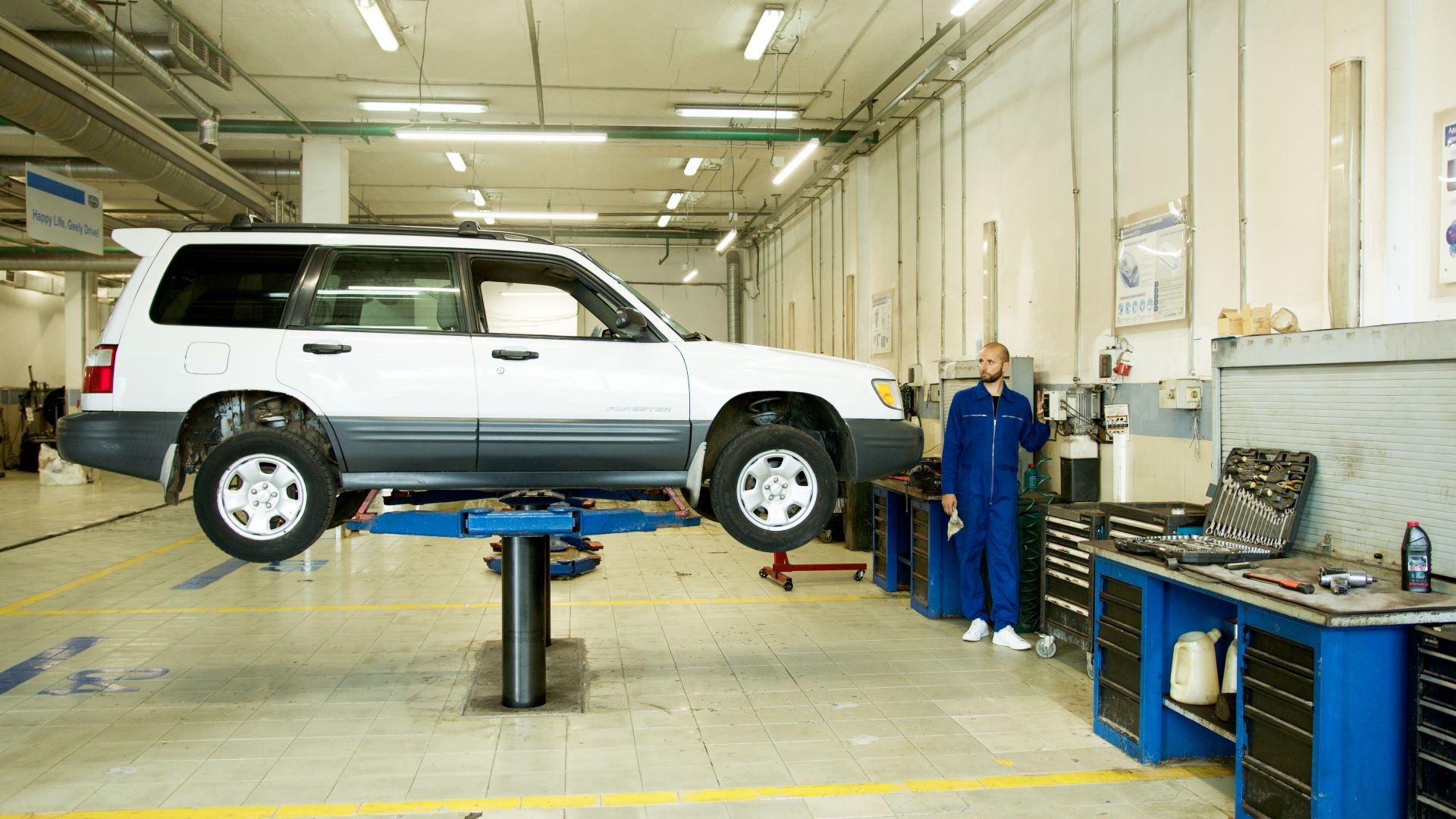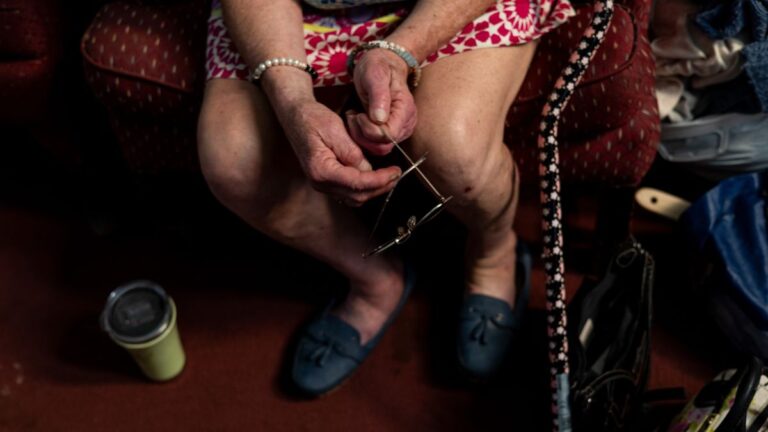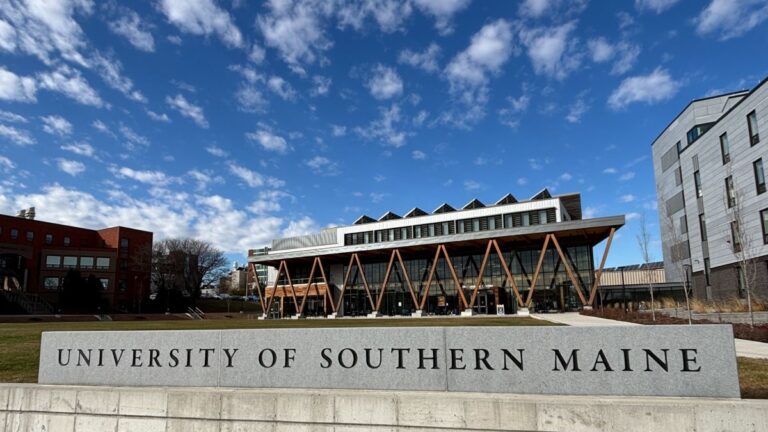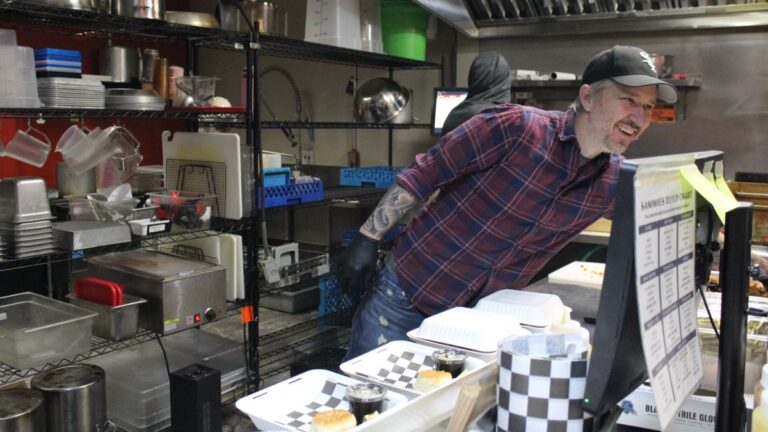A citizen initiative on Maine’s November ballot brings the state into a national “right to repair” movement that backers say helps give consumers more control over how and who can fix the products they buy.
Proponents say “right to repair” legislation levels the playing field and allows buyers more options in how they fix their products by allowing consumers the same ability to maintain their products as the manufacturers that make them.
The movement includes legislation enacted by Colorado in 2023 that requires agricultural equipment manufacturers to provide customers with the resources necessary to repair their purchases and a similar law pertaining to electronic equipment in New York.
In Maine, Question 4 applies those core tenets to the automotive industry, where cars are increasingly reliant on computerized systems that track vehicle movement, performance, and that diagnose mechanical issues.
But as those innovations race forward, independent auto repair shop owners say they have been left behind. They say those systems share data wirelessly with manufacturers but not owners and repair shops — hindering local mechanics’ ability to diagnose maintenance issues, and consumers’ ability to choose who should make repairs.
The push behind Question 4 looks to open up this data to repairers and car owners alike by requiring car manufacturers to share access to computerized systems, known as telematics, and diagnostic tools.
Conversely, opponents say that access is already available to independent repairers, and creating a standardized access platform for vehicle computer systems would create cybersecurity risks.
The question asks, “Do you want to require vehicle manufacturers to standardize on-board diagnostic systems and provide remote access to those systems and mechanical data to owners and independent repair facilities?”
If approved, the initiative would then require Maine’s Attorney General to establish an independent entity of auto repair and car manufacturer representatives to streamline data access through a standardized authorization process.
The Maine initiative was spurred by a group of independent auto repair shop owners and other right to repair proponents through a citizens’ petition of over 70,000 signatures presented to the Maine Secretary of State’s Office this winter.
According to the group, the Maine Right to Repair Coalition, a vast majority of new vehicles — 90 percent — are now built with systems that send repair information wirelessly to the manufacturer.
Car owners and independent repair shops are excluded from that wireless link, which limits the agency of car owners and repair shops, says coalition leader Tim Winkeler, CEO of VIP Tire and Service in Auburn.
“Vehicle owners should be able to take their car or truck wherever they want for repairs or fix it themselves, not be forced to go to more expensive dealerships,” Winkeler said in a 2023 press release from the coalition.
For Erik Lowell, owner of Duval’s Service Center in South Portland, the appeal of Question 4 is simple — customers spend hefty amounts on their cars and deserve the ability to repair them where they choose.
“The car’s the second largest purchase that most people make” behind a home, Lowell said. “So why should they be restricted on what they can do with it?”
Propped up in the window of his shop’s waiting room is a sign showing his support for Question 4, a topic he’s happy to discuss with any customer who walks in.
Although Lowell has not yet encountered any difficulties in accessing diagnostics systems from newer model cars, he says it’s only a matter of time before those cars’ warranties expire and customers will be looking for independent mechanics instead of car dealerships.
His concerns about accessing customers’ car data are not spurred from effects on his business, but rather the services he can provide at his neighborhood auto shop that has been independently owned and operated for nearly half a century.
“We can do everything from a simple … plug in your tire, up to a check-engine light or airbag light — So we can do tip to tip on the car,” Lowell said. “Currently, if we’re not able to provide the diagnosis anymore, we’re not able to fix the check-engine lights, [brake] lights and such.”
Getting locked out of a diagnostic system also complicates Lowell’s ability to provide safety inspections, he said, because mechanics can’t determine the origins of a check-engine light if they’re not connected to the system.
Maine requires motorists to get their cars inspected annually, and Lowell’s shop is licensed to provide those.
Up the coast in Boothbay, auto mechanic Dan Williams said his work has already been stymied by newer cars.
For model years 2021 forward, Williams, owner of Dan’s Auto Repair, said his repair efforts are dead on arrival when he plugs into these newer cars’ onboard diagnostics systems and is hit with an “access denied” message.
“There’s no other way for us to access any information without that connection,” Williams said.
Opposition to Question 4 primarily comes from the Alliance for Automotive Innovation, a trade group representing car manufacturers like General Motors, Ford, Subaru and Toyota.
Locally, Question 4 is also opposed by the Maine Automobile Dealers Association, a group representing franchised new car and truck dealers.
The association’s president, Tom Brown, said in an interview his group’s opposition aligns with some of the points raised by the Alliance — including that the initiative isn’t necessary because access to diagnostics already exists.
The Alliance has said automakers already supply independent repairers with the access they need to diagnose mechanical problems, often citing a memorandum of understanding signed between them and some automotive repair and parts organizations in 2014.
In July of this year, that memorandum was updated with additional provisions for telematics sharing.
But some auto repair groups have said they were left out of the new agreement, according to reporting from the non-profit news outlet Grist, and critics say the agreement still allows manufacturers to determine what data to share and how.
Lowell, for example, pays a $50 subscription fee to Chrysler to access its vehicles’ onboard diagnostics systems — a fee that Question 4’s passage could wipe away.
Wayne Weikel, Vice President of State Government Affairs for the Alliance, said a centralized website created by auto manufacturers connects mechanics with necessary diagnostic information.
Weikel’s organization has also warned of security risks associated with making vehicle data more widely available. It would go outside of the “hardened connection” current vehicles share between manufacturers.
He said the standardized platform proposed in Question 4 has never been done before and his organization believes it would be vulnerable to hacking.
That question of cybersecurity has perplexed even federal regulators, who have flip-flopped on their stance toward an automotive right to repair law approved by 75 percent of Massachusetts voters in 2020, according to WBUR, a Boston NPR affiliate.
The Massachusetts law has been tied up by litigation from the Alliance for Automotive Innovation and is awaiting a ruling from a federal judge.
In the meantime, the National Highway Traffic Safety Administration said in June, WBUR reported, the law conflicts with federal cybersecurity provisions and should not be followed. The agency then reversed that stance in August, saying the law could take effect so long as wireless access is limited to within close proximity to a vehicle.
Jessica Silbey, a law professor at Boston University who specializes in intellectual property law, said in an interview with The Maine Monitor manufacturers have an interest in maintaining the quality and safety of their goods. Still, she doesn’t see why that interest excludes independent repair.
“There are ways to achieve [safety and quality] and to balance their interests without monopolizing and extending one’s monopoly over the goods to the repair industry,” said Silbey, who added she is not affiliated with either side in the ballot initiative debate.
Lowell said he understands the security concerns raised by Question 4 opponents. He has no problem with the systems that Chrysler uses to authorize his mechanics to connect to vehicle diagnostics. He sees universalizing that process for car owners and independent auto repairers — which is proposed in Question 4 — as a natural next step.
Silbey warned of the effects limiting car-data access and tools would have on other independent mechanics whose work might be hindered after decades of unfettered access to cars.
“A lot of places aren’t going to be able to [buy necessary diagnostic equipment] right away or even in the near future, and it’s frustrating to people … if what they need to do is transform their whole way of doing things,” Silbey said.
Momentum behind the right to repair effort in the United States is stronger than ever, Silbey said. Three such bills were enacted at the state level in the past year, according to the National Conference of State Legislatures, and legislatures considered dozens of others.
“I think history will judge this moment,” Silbey said. “We need to care about the cost of goods, and we need to repair things rather than put them in landfills. So I hope that car companies will get on board and figure out a way to work with the people.”







